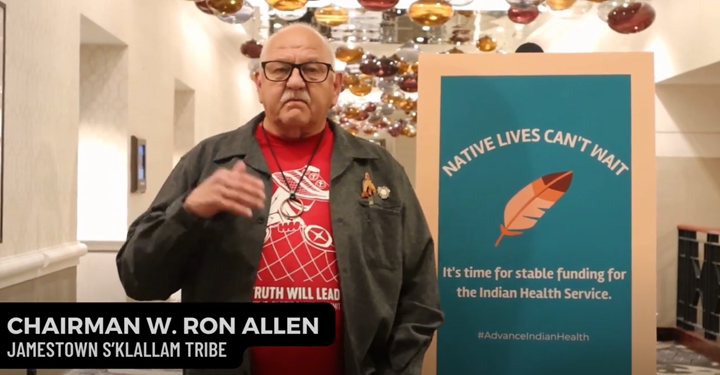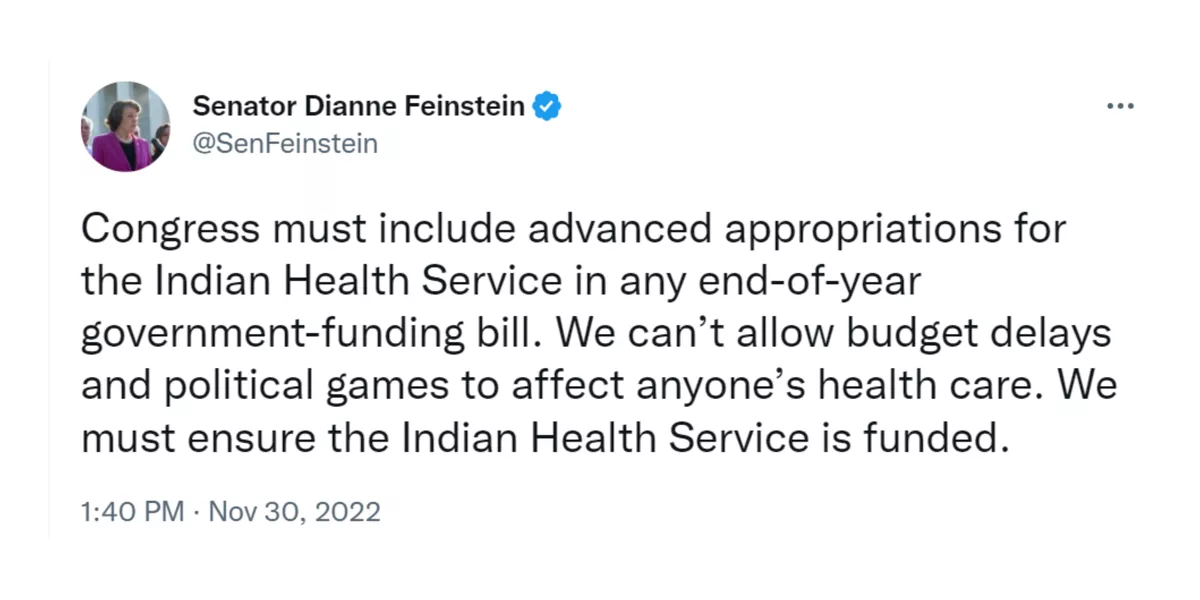NCUIH Urges Senate and House Appropriations Committees to Provide Full Stable Funding for IHS and Urban Indian Health in FY 2024
On April 8, 2023, the National Council of Urban Indian Health (NCUIH) sent a letter to Chairman Jeff Merkley (D-OR) and Ranking Member Lisa Murkowski (R-AK) of the Senate Interior Appropriations Committee requesting full funding for the Indian Health Service (IHS) and urban Indian health, advance appropriations for IHS, and resources for Native behavioral health in Fiscal Year (FY) 2024. On March 24, 2023, NCUIH also sent a letter to Chairman Kay Granger (R-TX-12) and Ranking Member Rosa DeLauro (D-CT-3) of the House Interior Appropriations Committee with the same requests.
The letter emphasizes the critical role that urban Indian organizations (UIOs) play in health care delivery to American Indian and Alaska Native (AI/AN) patients and the importance of providing UIOs with the necessary funding to continue to provide quality, culturally competent care to their communities. The requests included in the letter are efforts to achieve parity and uphold the federal trust responsibility for urban Natives.
In the letters, NCUIH requested the following:
- $51.42 billion for IHS and $973.59 million for Urban Indian Health for FY24, as requested by the Tribal Budget Formulation Workgroup (TBFWG)
- Maintain Advance Appropriations for the Indian Health Service until Mandatory Funding is Enacted and protect IHS from sequestration
- Appropriate $80 million for the Native Behavioral Health Resources Program
These requests come at an important time to protect funding for urban Indian health. Current debt ceiling negotiations by Congress include proposals to cut spending for domestic programs and return funding for federal agencies to FY 2022 levels. These proposals would be detrimental to the success of IHS, Tribal organizations, and UIOs and would roll back historic funding levels that contribute to better health outcomes for Native communities. It is important that members of the House and Senate work to protect the health of all American Indians and Alaska Natives.
Full Letter Text
On behalf of the National Council of Urban Indian Health (NCUIH), the national advocate for health care for the over 70% of American Indians and Alaska Natives (AI/ANs) living off-reservation and the 41 Urban Indian Organizations (UIOs) that help serve this population, we write to respectfully request that Congress honor the federal trust responsibility by ensuring the following asks for Indian Country in Fiscal Year (FY) 2024:
- $51.42 billion for the Indian Health Service (IHS) and $973.59 million for Urban Indian Health for FY24, as requested by the Tribal Budget Formulation Workgroup (TBFWG)
- Maintain Advance Appropriations for the Indian Health Service until Mandatory Funding is Enacted and protect IHS from sequestration
- Appropriate $80 million for the Native Behavioral Health Resources Program
We applaud the Committee’s longstanding leadership to ensure the trust responsibility for health care is upheld and honored for all AI/AN, especially last year with achieving advance appropriations for IHS.
UIOs Play a Critical Role in Providing Health Care for AI/ANs
UIOs are on the front lines in providing for the health and well-being of AI/ANs living off-reservation, many whom lack access to care that would otherwise be provided through on-reservation health care facilities. UIOs play a critical role in fulfilling the federal government’s responsibility to provide healthcare for AI/ANs and are an integral part of the Indian health system, which is comprised of the IHS, Tribal organizations, and urban Indian organizations (collectively, the I/T/U system). UIOs are critical health care access points to help serve the over 70% of AI/ANs in urban areas. Congress must do more to fully fund the IHS to improve health outcomes for all Native populations.
Need for Full Funding of the Indian Health System including Urban Indian Health
It is the policy of the United States “to ensure the highest possible health status for Indians and urban Indians and to provide all resources necessary to effect that policy.” This requires that funding for Indian health must be significantly increased if the federal government is to finally fulfill its trust responsibility. At a minimum, funding must be maintained and protected as budget-cutting measures are being considered. UIOs are reporting historic levels of patients, need funding to fulfill the needs of the majority of the AI/AN population. Full funding will empower UIOs to hire more staff, pay appropriate wages, as well as expand vital services, programs, and facilities. Congress must do more to increase funding as the current FY23 funding level of $90.49 million which is only 9.3% of the full FY24 amount requested by Tribes and UIOs to meet current need.
Retain Advance Appropriations for IHS until Mandatory Funding is Enacted and Protect IHS from Sequestration
We applaud this Committee for your work on the historic inclusion of advance appropriations in the FY23 Omnibus. This is a crucial step towards ensuring long-term, stable funding for IHS. Previously, the I/T/U system was the only major federal health care provider funded through annual appropriations. It is imperative that this Committee retain advance appropriations and ensure that IHS is protected from sequestration.
The GAO cited a lack of consistent funding as a barrier for IHS. The Congressional Research Service stated that advance appropriations would lead to cost savings as continuing resolutions (CRs) “prohibits the agency from making longer-term, potentially cost-saving purchases.” Lapses in federal funding quite literally put lives at risk. During the shutdown at the start of FY 2019, the Indian health system was the only federal healthcare entity that shut down. UIOs are so chronically underfunded that several UIOS had to reduce services, lose staff, or close their doors entirely, forcing them to leave their patients without adequate care. It is imperative that advance appropriations provide certainty to the IHS system and ensure unrelated budget disagreements do not put lives at stake.
Advance appropriations will improve accountability and increase staff recruitment and retention at IHS. When IHS distributes their funding on time, our UIOs can pay their doctors and providers. During a pandemic that has ravaged Indian Country and devasted the workforce, being able to recruit doctors and pay them on time is a top priority.
While advance appropriations are a step in the right direction to avoid disruptions during government shutdowns and continuing resolutions (CRs), mandatory funding is the only way to assure fairness in funding and fulfillment of the trust responsibility. Until authorizers act to move IHS to mandatory funding, we request that Congress continue to provide advance appropriations to the Indian health system to improve certainty and stability.
Cuts from sequestration, the automatic spending cuts that occur through the withdrawal of funding for government programs, force I/T/U providers to make difficult decisions about the scope of healthcare services they can offer to Native patients. For example, the $220 million reduction in IHS’ budget authority for FY 2013 resulted in an estimated reduction of 3,000 inpatient admissions and 804,000 outpatient visits for AI/ANs. Therefore, we request that you exempt IHS from sequestration and other budget cutting measures as is required by the trust responsibility.
Appropriate $80 Million for the Native Behavioral Health Resources Program
Native people continue to face high rates of behavioral health issues caused by generational trauma and federal policies. Native people experience serious mental illnesses at a rate 1.58 times higher than the national average, and high rates of alcohol and substance abuse. In fact, between 1999 and 2015, the drug overdose death rates for Native populations increased by more than 500%. Native youth also experience the highest rates of suicide and depression, with the Native youth suicide rate being 2.5 times that of the national average.
In response to these chronic health disparities, Congress authorized $80 million to be appropriated for the Native Behavioral Health Resources Program for fiscal years 2023 to 2027. Despite authorizing an appropriation of $80 million for the Program, Congress did not appropriate that sum for FY 23.
We request that the authorized $80 million be appropriated to the Native Behavioral Health Resources Program for FY 24 and each of the remaining authorized years. Until the committee appropriates funding for this program, critical healthcare programs and services cannot operate to their full capability, putting Native lives at-risk. We ask that this essential step is taken to ensure our communities have access to the care they need.
Conclusion
Among the most sacred of the duties encompassed within the federal trust responsibility is the duty to provide for Indian health care. The United State’s failure to fulfill its obligations to provide health care to urban Indians has real and devastating effects on our communities. We urge Congress to act swiftly to redress this problem by appropriating $51.42 billion for the Indian Health Service and $973.59 million for Urban Indian Health in the FY24 Interior, Environment, and Related Agencies Appropriations. NCUIH looks forward to working with you as you craft a budget that upholds the trust responsibility to urban Indians.

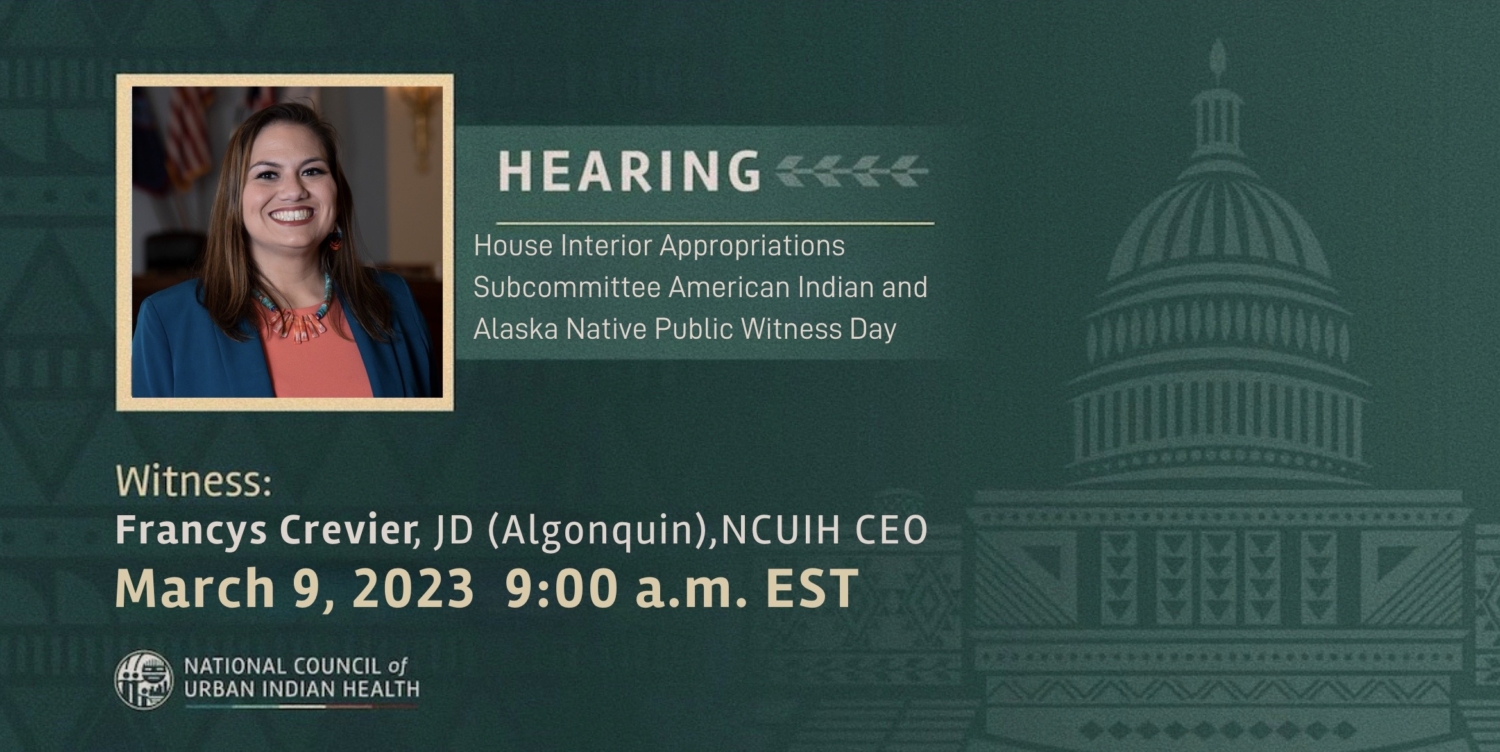
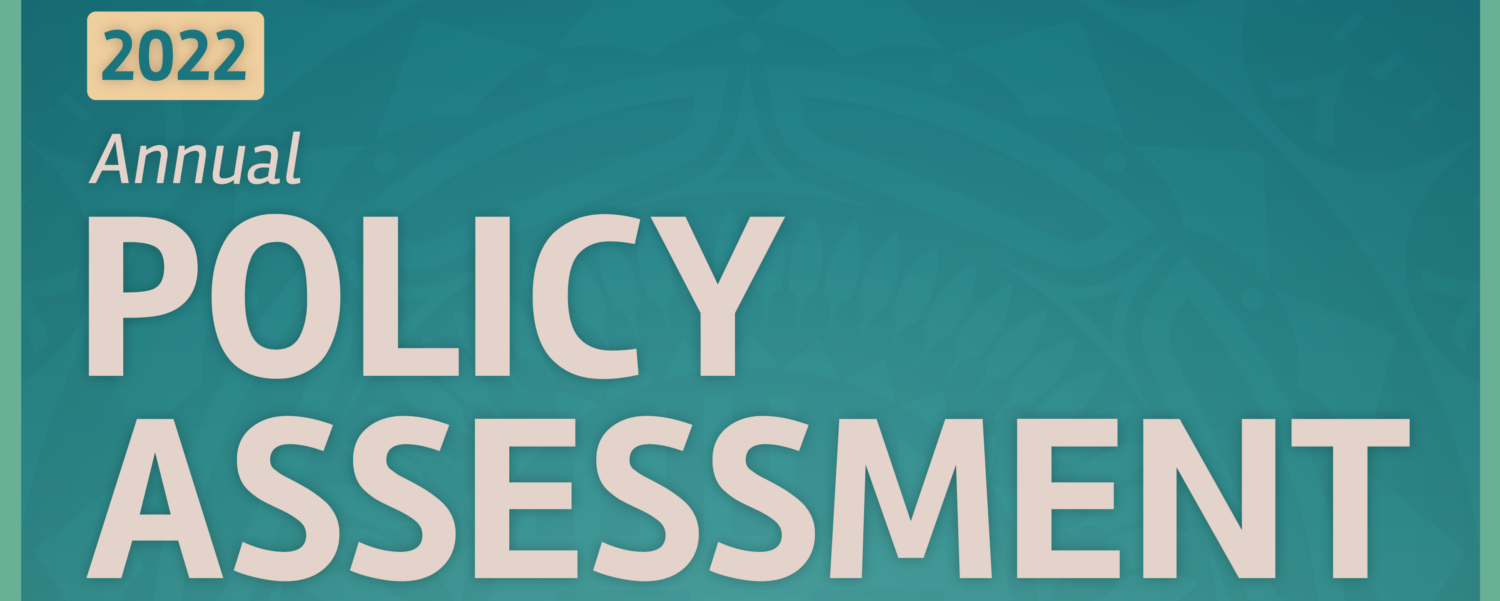 The National Council of Urban Indian Health (NCUIH) is pleased to announce the release of its
The National Council of Urban Indian Health (NCUIH) is pleased to announce the release of its 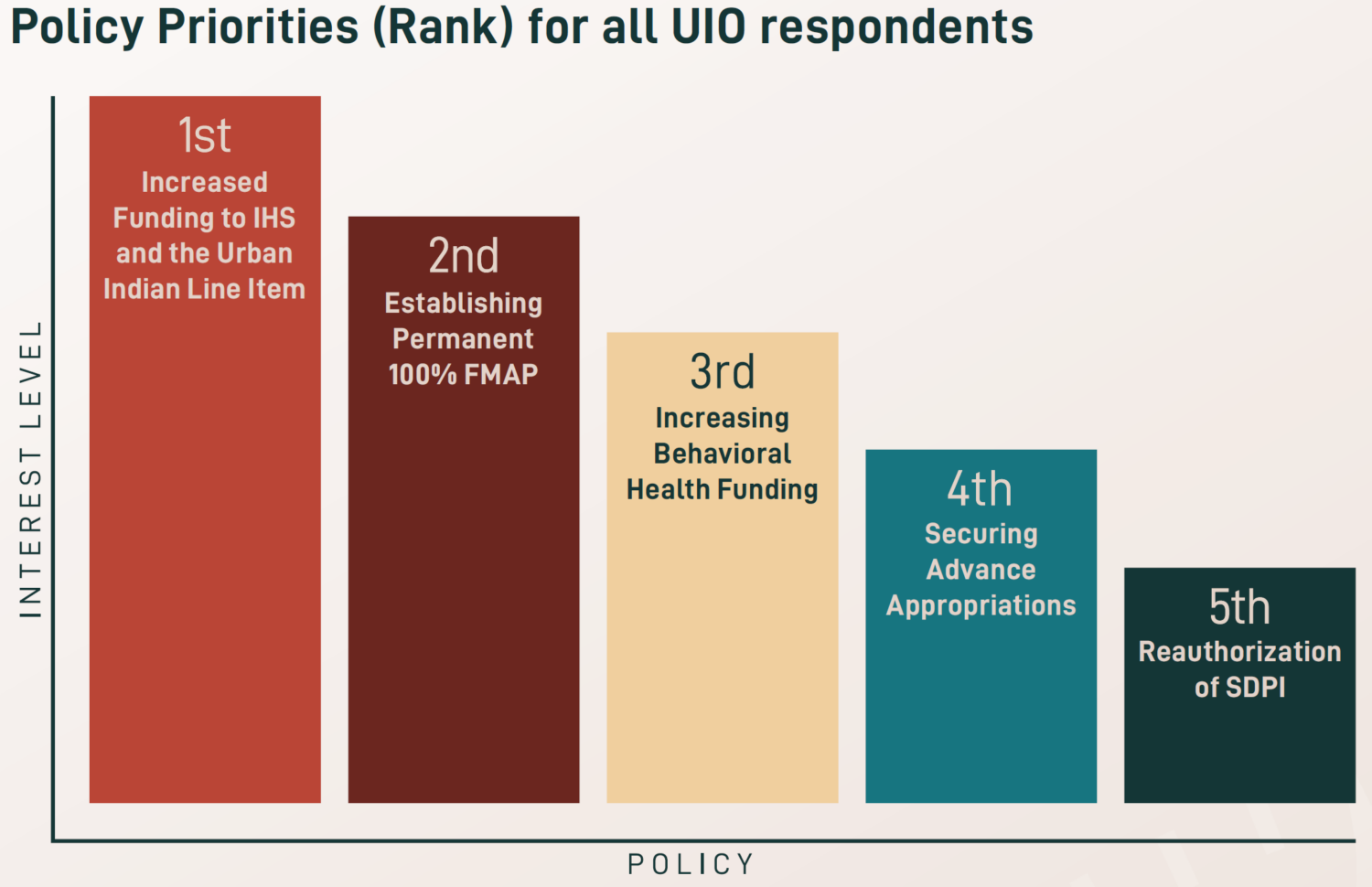 After the height of the COVID-19 pandemic, newfound priorities were identified for 2023, including workforce development and retention, increased funding for traditional healing, and expanded access to care and telehealth services. Existing priorities also remain a key focus across UIOs, especially increasing funding amounts for the urban Indian health line item and IHS, maintaining advance appropriations for IHS, establishing permanent 100% Federal Medical Assistance Percentage (FMAP) for UIOs, reauthorizing the Special Diabetes Program for Indians (SDPI), and increasing behavioral health funding.
After the height of the COVID-19 pandemic, newfound priorities were identified for 2023, including workforce development and retention, increased funding for traditional healing, and expanded access to care and telehealth services. Existing priorities also remain a key focus across UIOs, especially increasing funding amounts for the urban Indian health line item and IHS, maintaining advance appropriations for IHS, establishing permanent 100% Federal Medical Assistance Percentage (FMAP) for UIOs, reauthorizing the Special Diabetes Program for Indians (SDPI), and increasing behavioral health funding.
